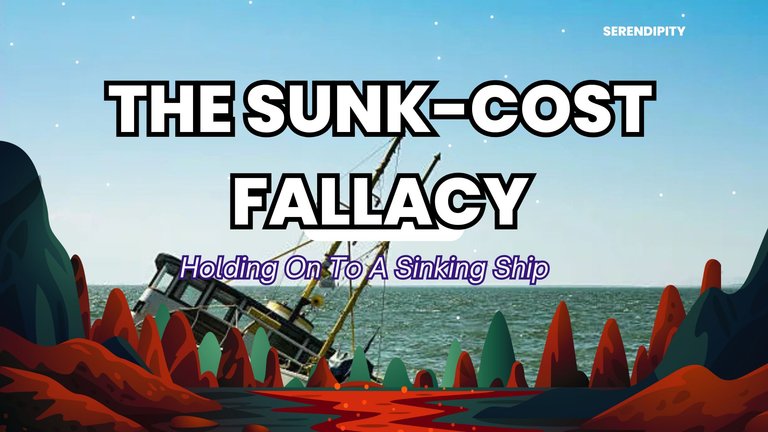
A friend of mine—let us call her Anna—decided to start her own bakery. She always had the dream of selling her famous cupcakes to dignitaries and being able to bake for weddings and events. So she took a small loan, rented a place in town, and started her baking. For the first few months, things were fine. She had regular customers who loved her cupcakes, and she even started experimenting with new recipes.
But things gradually did not seem to add up. She began to realize that she was running at a loss. The rent for the place was high, and the marketing strategy she was using wasn’t bringing her any new customers. Every month, it seemed like her profit was lower than in the previous month.
Facing all of this made Anna anxious, but instead of stepping back to re-evaluate the business, she decided that the best course of action was to double down and invest more money in fancier equipment. She thought better tools would make the difference. She hired a marketing agency to fix her visibility problem, but all of that did not seem to make any significant improvements.
I met Anna one afternoon, and she began to lament to me about the woes of her business. I looked at her and asked a simple question that, at the same time, seemed to be unthinkable to her:
"Why haven’t you cut your losses? Why not move on?"
She paused, looked at the ground, and then looked at me. With a heavy sigh, she said:
"I have already put so much into this... I can’t just quit now."
This is the trap of the sunk cost fallacy.
Why do we fall for the fallacy?

The sunk cost fallacy is a cognitive bias/sentiment that makes us stick with our decisions and find ways to justify them simply because we have already invested a lot of time, money, or energy into them, even when it is clear that it’s not working.
Have you started watching a movie that you were not enjoying and decided to finish it because you had already made it halfway? Have you noticed that some people stay in a relationship that is not working because "they’ve been together for so long"? These are examples where we see this fallacy in action.
The fallacy comes from our deep discomfort with waste. We fundamentally do not like waste, so the more we have poured into something, the harder it is for us to walk away from it, even when staying with it may cause more harm than good.
We are fundamentally attached to investments that we have made. We are fundamentally wired to avoid loss. This is known as loss aversion. When we walk away from an investment, it feels like admitting defeat. We feel the same pain we feel when we lose a competition.
For Anna, giving up on the bakery meant that she would lose money and abandon her dream as well. The emotional weight made it extremely difficult for her to let go.
Breaking Free

When it comes to money, it is important not to give in to this fallacy. Here are a few things to consider in order to avoid it:
Focus on the future, not the past—It is important to ask: "If I hadn’t already spent this money, would I still choose to invest in this today?" This question helps you focus on the potential of your decision and not be weighed down by the costs that you have already incurred.
Separate emotions from logic—Sometimes, it is actually wise to quit. Recognizing that something is not working and pivoting to something else can open up new opportunities you did not know existed. This can only happen if you are not emotionally invested in your decision. Learn to take a step back and evaluate the situation objectively. It may help to write out the pros and cons.
Track your investments—Money, time, or energy can be tracked. Keeping a detailed record of what you are spending and where you are spending it can make it easier to spot when a project is no longer viable.
Set clear limits upfront—Before you start, it may be helpful to decide how much you are willing to spend on a given venture and for how long. Pre-determined limits can act as a barrier to prevent you from overcommitting when emotions take over. It is like a stop loss; it prevents you from wrecking your account.
Conclusion
Anna eventually closed her bakery—a very tough decision. Anna had realized that the bakery was bleeding her financially the longer she held on to it. So, next time you are tempted to throw a life raft into a burning boat, pause and think. Are you holding on because it is the best choice, or because it is too painful to leave?
Letting go of a sinking ship is the only way to ensure that we make decisions that truly serve our goals in the long term.
Thank you for reading.
 )
)